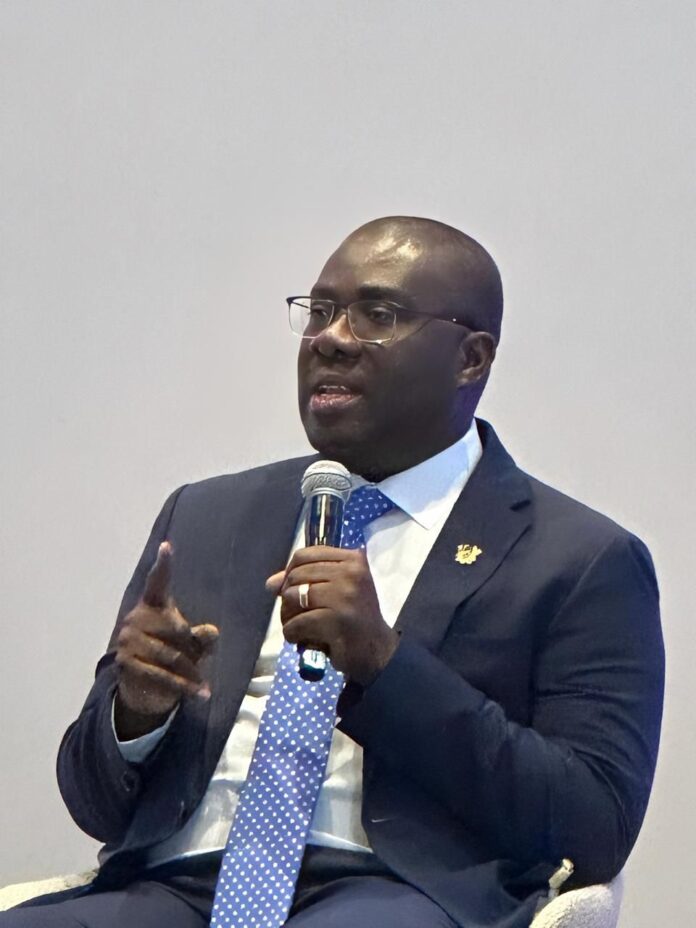In a bold and insightful statement to Parliament, Sammi Awuku, Member of Parliament for Akuapem North and former Director-General of the National Lottery Authority (NLA), emphasized the untapped potential of lottery proceeds to significantly boost the nation’s development.
Awuku urged lawmakers to consider amending the current National Lotto Act, 2006, to ensure a more strategic use of funds, stronger regulations against illegal lottery operations, and a broader understanding of the socio-economic benefits of lotteries.
Optimizing lottery proceeds for national development
Awuku highlighted the crucial role that the National Lottery Authority (NLA) plays in Ghana’s economic framework, contributing over 300 million cedis annually.
However, he pointed out that these proceeds are often lost in the general expenditure of the Consolidated Fund, limiting their potential for targeted development.
Drawing inspiration from global examples, Awuku proposed that Ghana emulate successful models from countries like Spain, Greece, and the USA, where lottery proceeds have been effectively channeled to support various social causes.
He referenced the European Lottery Association’s motto: “A sustainable model for the benefit of society,” arguing that lottery funds should not merely serve as entertainment but as a vital resource for public welfare, including education, healthcare, sports, and infrastructure development.
“Lottery funds can contribute directly to essential sectors like health, education, and youth development,” Awuku stated.
He also suggested allocating proceeds to marginalized communities, supporting social interventions for the elderly, disabled, and vulnerable groups, and assisting MPs in developing their constituencies through the District Assemblies Common Fund.
Strengthening the fight against illegal lottery operations
Awuku didn’t shy away from addressing the pressing issue of illegal lottery operations, which he described as a significant threat to the country’s lottery sector.
According to his statement, around 60% of Ghana’s lottery market is dominated by unlicensed operators, resulting in substantial revenue losses for the state.
He called for stricter penalties for illegal operators, proposing an amendment to the National Lotto Act, 2006, to impose higher fines and longer jail terms.
He also recommended that assets acquired through unlawful lottery activities be forfeited to the NLA for reinvestment into operational activities.
Awuku argued that this approach would not only enhance revenue collection but also curb the rise of illicit gaming activities that have become a pervasive issue in the country.
“The current fines and penalties are insufficient to deter illegal operators who often have the financial means to bypass these sanctions,” he said.
Responsible gaming and public education
In addition to promoting more transparent and responsible gaming practices, Awuku called for the establishment of social centers across communities to address gambling addiction, particularly among minors.
He advocated for the creation of advisory bureaus within NLA district and regional offices to provide support for individuals struggling with gambling-related issues.
“We must demystify the lottery, not just as a source of entertainment but as a vital economic tool for the state. Public education on the social benefits of lottery proceeds is essential for generating more revenue and safeguarding vulnerable individuals from the negative impacts of gambling,” he stated.
The path forward: collaboration and innovation
Awuku’s address stressed the importance of collaboration between the government, the NLA, and third-party stakeholders to reform Ghana’s lottery industry.
He pointed to international success stories, such as Malta’s booming online gaming industry, as proof of what Ghana could achieve with the right regulation and oversight.
“Online gaming contributes over 12% to Malta’s GDP. If we regulate Ghana’s lottery market more effectively, we too can unlock similar potential,” Awuku concluded.
As lawmakers prepare to deliberate on his proposals, Awuku’s statement signals a strong commitment to revitalizing Ghana’s lottery sector—transforming it from an entertainment tool into a critical source of sustainable revenue for national development.
If implemented, these reforms could not only strengthen the economy but also improve the lives of countless Ghanaians across the country.

